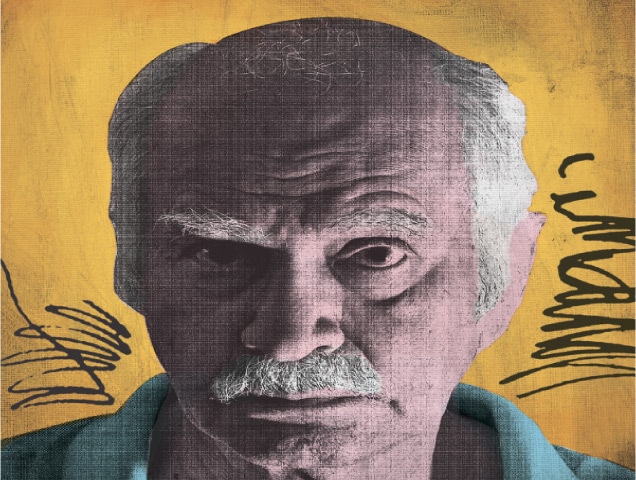
It is common for writers to receive requests from new, and not always young, would-be writers to give them recommendations that would help them publish their work, or win some prize. Often, they will send the draft of an entire novel, or a collection of stories, and expect the writer to help them promote it. In most cases, all they know about the writers they contact is not the quality of their work — which they have not read — but that they have become a recognisable name.
Looking at the works I receive, it is rare not to observe how many of them fall for clichés which they seem to believe originate in their own brilliant imagination and will trap the reader into an instant absorption in their text.
The most frequent device is to make a reference to sexual activity in the opening sentence, as if such crude voyeurism to hook the reader had not been used before. As American novelist Flannery O’Connor said, “I know well enough that very few people who are supposedly interested in writing are interested in writing well. They are interested in publishing something … They are interested in seeing their names at the top of something printed, it matters not what.”
It is possible, of course, that a work worthy of advancement might be hidden somewhere in the heaps of rubbish, which is why one is loath to trash one more such email without taking a glance to see if there is any arresting expression, or a hint of any formal experimentation in it.
Those of us who thought of ourselves as serious writers at the time dismissed the Booker as designed to promote popular writers
The sad thing is that much that is destined to be trashed is inspired by what’s currently being promoted by mainstream publishers for its topical subject matter, as if literature were a branch of tabloid journalism, bringing sensational examples of the latest public obsession that has people staring at cable news night after night.
Of course, popular writing has always duplicated variations of the same old gossip that grips the jaw-dropping curiosity of its readers but, until the first half of the 20th century, there was a clear distinction between literary texts and what was churned out by the Grub Street hacks. Then came the creative writing courses at universities, first in a few provincial colleges in the United States and then at major universities all over the world. And if that weren’t enough to meet the burgeoning demand, creative writing sites sprang up on the internet.
American poet and critic Ezra Pound’s admonition, “Pay no attention to the criticism of men who have never themselves written notable work” — which I have often quoted as a vital precondition for the teaching of literature — is even more applicable to one who teaches writing. But given that the majority teaching it are without any reputation, if they have published anything at all, which most have not, they use textbooks which offer elementary exercises.
It’s like you sign up for a university course in physics and the professor takes you chapter by chapter through Euclid so that you can draw an equilateral triangle. And, worse still, universities set up graduate creative writing programmes and began to confer MFA degrees, and hordes of these certified writers now take off annually to cloud the publishing sky like great flocks of migrating geese, squawking as they passingly darken the sky.
No doubt two or three laggards parted from the swarming geese fall away and pursue their individual literary dream of creating an original perception expressive of the human condition. From a broader perspective, that’s how it has always been, only the proliferation of creative writing classes now generates thousands of new aspirants from Australia across South Asia, the United Kingdom and North America, every year in the English language alone.
Until 50 years ago in England, one went to a university and read English or Modern Languages, came down to London on graduation and, attending poetry readings and public lectures, found oneself among a dozen other aspiring writers, and some of us were taken up by the serious magazines and noticed by older, established writers and then by publishers.
It was not so simple, or easy, of course, especially for those with dark skin and a non-European name, but the English sense of fairness helped us survive.
While there had always been subtle generational changes in the literary scene, there was a radical shift that began in the 1960s, stimulated by the new dominance of popular culture created by television and by publishers losing their national identities on being bought by foreign corporations to feed capitalism’s rampant greed.
This is when the publishers decided that prizes could be used as promotional tools to sell books, and new awards — such as the National Book Critics Circle Award in the US, and the Booker in England — were set up. Those of us who thought of ourselves as serious writers at the time dismissed the Booker as designed to promote popular writers such as Bernice Rubens — one of its early, and now forgotten, recipients — but the publishers persisted with the publicity machine they’d set up and the Booker began to be taken seriously, and to be anticipated each year with actively generated public speculation.
Next thing, a ‘shortlist’ of that year’s contenders would be published weeks before the announcement of the prize, which promoted the sale of those on the list. Once that had become routine, they began to publish a ‘longlist’ before announcing the shortlist. Perhaps we can next expect a ‘first list’ of all the nominees before they’re reduced to a longlist.
The success of the Booker prompted the creation of several other prizes — the Orange Prize, for one, that’s also become an annual event. As with the teaching of creative writing courses, there simply are not enough competent writers to serve as jurors and all we mostly end up with are more clamouring geese. Ah well, given my curious surname, who am I to complain that some of them are pecking at my windows?
The columnist is Professor Emeritus at the University of Texas, a literary critic and fiction author
Published in Dawn, Books & Authors, November 7th, 2021














































Dear visitor, the comments section is undergoing an overhaul and will return soon.